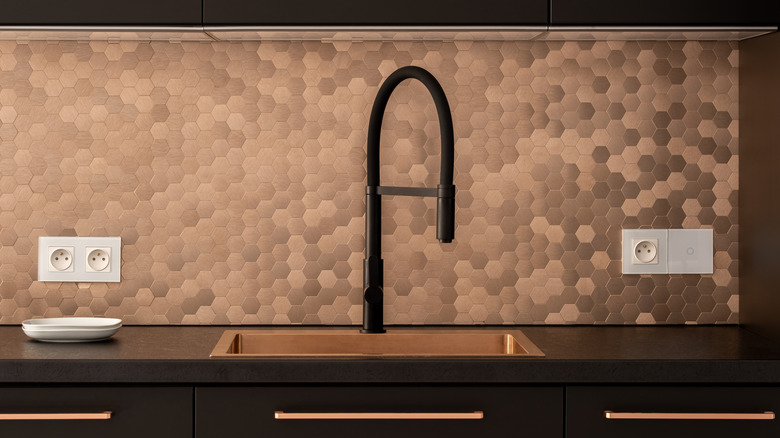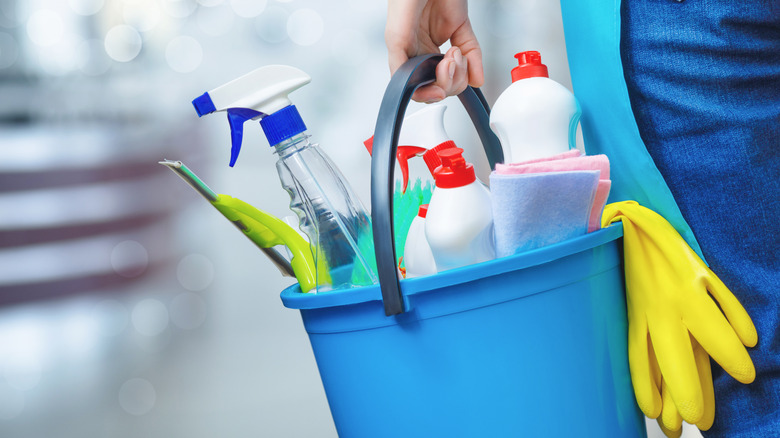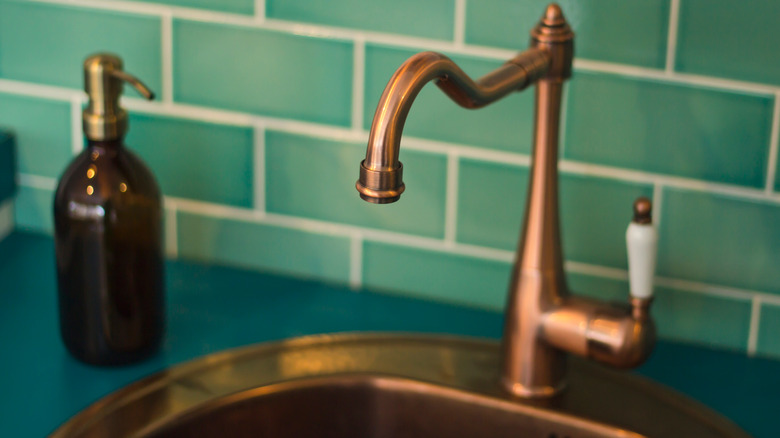The Copper Sink Cleaning Tricks You Should Be Using
Copper sinks are rustic and gorgeous, the perfect unique element to add to any kitchen. However, their appearance isn't the only thing many love about them; copper sinks also have antibacterial properties (potentially resulting in less family illnesses), are super durable, and will last a long time, per Quality Bath. But some homeowners decide to pass on a copper sink because of the extra maintenance required.
It's true, there are quite a few things that can damage a copper sink. These include abrasive sponges or cleaning pads, harsh chemicals, and hard water. Even acidic foods can damage this beautiful statement kitchen piece. However, if you're thinking about buying a new sink, don't let these reasons deter you from copper. With just a little bit of extra care, you can easily clean and maintain a copper sink. Understanding what can damage a copper sink and proper maintenance techniques are the two best ways to care for one.
What can damage a copper sink
The first thing that could damage a copper sink is an abrasive sponge or cleaning pad. You'll want to avoid anything with metal bristles or steel wool, per Sinkology. Second, avoid using harsh chemicals on a copper sink. There are commercial copper cleaners, but only use these if you want your sink to have a bright, matte look, per Copper Sinks Online.
Third, hard water, or water with extra minerals, can damage your sink, as it can lead to mineral build up. Home Water says that you can check how hard your water is by filling an empty bottle with 1/3 sink water and a couple drops of dish soap, then shaking it. If there aren't many bubbles and the water looks cloudy, you have hard water. However, having hard water doesn't mean you can't have a copper sink. It just means you'll have to be vigilant about caring for your sink.
Finally, you'll want to avoid exposing a copper sink to acidic foods for too long, like lemon juice. Other acidic foods include tomatoes, ketchup, pepperoni, oils, and soda.
How to care for a copper sink
While there are many things that could damage a copper sink, there's also many ways to adverse impacts. First, when cleaning your sink, instead of using a rough, potentially harmful sponge, use a soft sponge or cloth. You'll want to wipe down your sink regularly to avoid any mineral or food build-up.
Second, a copper sink does not need to be cleaned with harsh chemicals. When regularly cleaning your sink, simply use warm water and dish soap on a sponge or rag. If you come across a tougher stain, you can use an ingredient from your kitchen to remove it. Muy Bueno says that warm water and baking soda work wonderfully to remove stains. Baking soda is a great cleaning hack that works to break down leftover food. You'll also want to pat your sink with a dry cloth after cleaning, per Quality Bath. This will remove excess moisture, which can cause mineral build-up.
Finally, to care for a copper sink, be diligent about cleaning your dishes quickly, per Sinkology. If you allow dishes or potentially acidic foods to sit in your sink for too long, they may cause damage.


